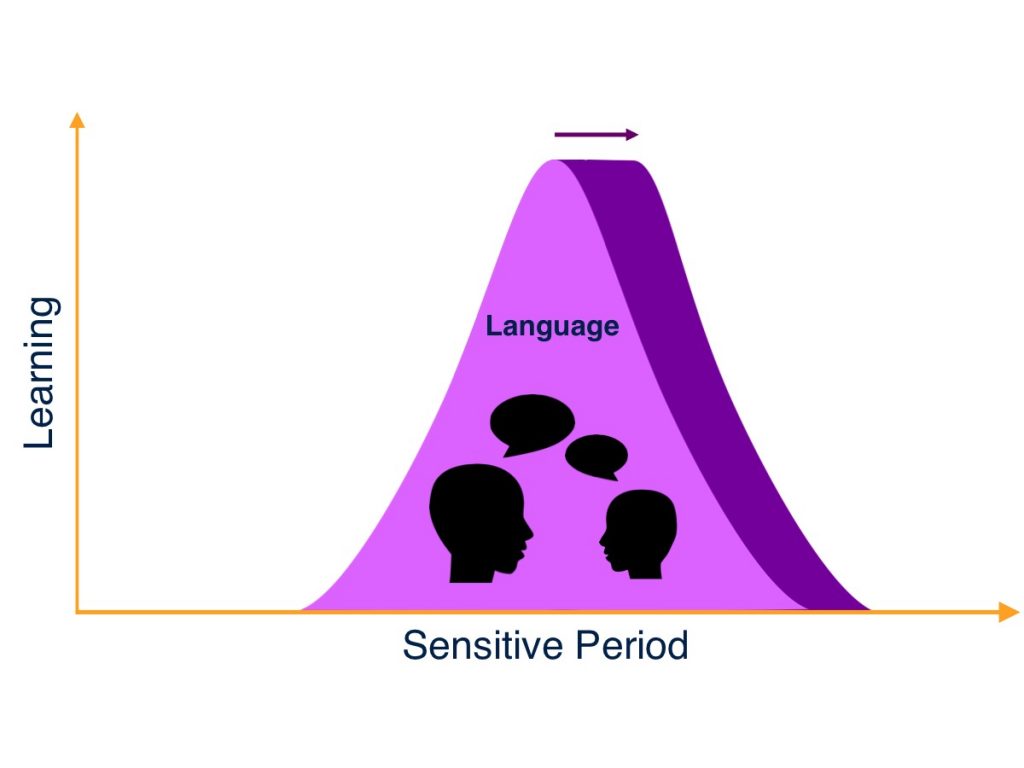
The experience of learning a second language is easiest during the sensitive period. A sensitive period is a time in development when the brain is especially ready to learn a specific skill. The sensitive period for learning the sounds of language is in the first year of life. There is a sensitive period for word learning in the second year of life. It becomes harder to learn a new language as we get older.
When they are born, babies can distinguish the sounds of all the languages of the world. Monolinguals do this well until about 6-8 months of age. As they hear more of their native language, they become specialists in that language. By 10-12 months of age, monolinguals are good at recognizing the sounds of their native language. But they lose some ability to distinguish between sounds in foreign languages. The pink area of the graph shows what the sensitive period looks like for monolinguals. The peak period is where the brain is uniquely prepared to learn the sounds of language.
Bilingual children also become specialists in their two native languages. But they have an extended sensitive period, as you can see in the purple area of the graph. Compared to monolinguals, bilinguals recognize foreign language sounds for longer. Regular exposure to more than one language changes the sensitive period in the developing brain. This is not a delay. In fact, bilingualism offers several cognitive advantages that we will discuss later in this module.
-
- Bilingual
- a person who knows and uses two languages
- Code mixing
- mixing words from different languages in the same sentence or situation
- Cognitive flexibility
- the ability to quickly switch between different concepts or rules
- Dominant language
- is the language a bilingual is most skilled at understanding and/or speaking
- Executive function
- a set of mental abilities that help us plan, focus attention, problem solve, and switch between tasks
- Language transfer
- applying the knowledge from one language to another language
- Monolingual
- a person who knows and uses a single language
- Simultaneous bilingualism
- a person learns two or more languages from birth
- Sequential bilingualism
- a person first learns one language then learns one or more languages later